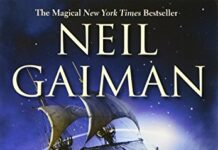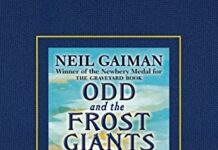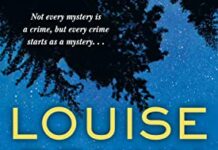
Ebook Info
- Published: 2017
- Number of pages: 544 pages
- Format: Epub
- File Size: 1.00 MB
- Authors: Neil Gaiman
Description
An inquisitive observer, thoughtful commentator, and assiduous craftsman, Neil Gaiman has long been celebrated for the sharp intellect and startling imagination that informs his bestselling fiction. Now, The View from the Cheap Seats brings together for the first time ever more than sixty pieces of his outstanding nonfiction. Analytical yet playful, erudite yet accessible, this cornucopia explores a broad range of interests and topics, including (but not limited to): authors past and present; music; storytelling; comics; bookshops; travel; fairy tales; America; inspiration; libraries; ghosts; and the title piece, at turns touching and self-deprecating, which recounts the author’s experiences at the 2010 Academy Awards in Hollywood.
Insightful, incisive, witty, and wise, The View from the Cheap Seats explores the issues and subjects that matter most to Neil Gaiman—offering a glimpse into the head and heart of one of the most acclaimed, beloved, and influential artists of our time.
User’s Reviews
Review “Gaiman’s prose reveals the relaxed intimacy of a cherished dinner partner and never loses sight of the big picture. . . . Highly recommended for readers of Gaiman’s work, specifically, and sf and fantasy generally, as well as those interested in cultural criticism and the art and craft of writing.” — Library Journal (starred review) on THE VIEW FROM THE CHEAP SEATS“Full of devotion and erudition, this is also a glorious love-letter to reading, to writing, to dreaming, to an entire genre.” — Junot Díaz, Pulitzer Prize-winning author of THE BRIEF WONDROUS LIFE OF OSCAR WAO on THE VIEW FROM THE CHEAP SEATS“If this book came to you during a despairing night, by dawn you would believe in ideas and hope and humans again. This is a beautiful, beautiful book.” — Caitlin Moran, journalist and New York Times bestselling author of How to Build a Girl
Reviews from Amazon users, collected at the time the book is getting published on UniedVRG. It can be related to shiping or paper quality instead of the book content:
⭐ When I first saw Neil Gaiman in person, he was saying this: “The next time someone tells you about comics as the hot investment item of the nineties, do me a favor, and tell them about the tulips.”This was the end of his 1993 speech to a room full of comic shop owners and sellers who were experiencing an unprecedented boom in their business – comics were selling as they never had before, and were seen as great investments. Neil’s speech was about tulips, and about good comics, and about history and economy. But mostly, it was about tulips.It was a warning: Don’t get complacent with the current scenario. We’ve seen this sort of thing before, and it didn’t end well. Focus on selling good comics, the comics you love, and the future will be the brighter for it. “Remember what it is you’re selling people,” he implored. It was a strangely controversial speech, and was not well-received by many of those in attendance.I thought it was brilliant. As an introduction to Neil Gaiman the man, beyond the visionary author behind Sandman, it’s hard to imagine a better way to come to understand how he views the world around him. Neil was charming and witty and humble, but also strangely wise. He brought an obscure historical analogy about tulips, as described in a century-old book about popular delusions, into a room full of people enjoying their success in a modern medium, and he warned them of what the tulips had to say about the comics industry. For those listening, he made his point perfectly. For those listening, he was an inspiration to do better. Sadly, not everyone was listening.The text of Neil’s 1993 speech is reprinted in ‘The View from the Cheap Seats.’ It’s one of many such speeches, introductions, articles, and musings you’ll find in these pages, and here’s the thing: they’re all like that. All are written with wit and with wisdom, in a voice that is similar to the one you hear in Neil’s fictions, but more distinctly him. There’s a natural humility and warmth that exudes each piece, and with each one, you learn a little more about the things he’s seen, what he loves, and who he is. Like that 1993 speech, each piece reveals an aspect of the man behind the fiction – these pieces read like a conversation, the good kind of conversation that keeps you up until the grey hours of the morning because you don’t want it to end.We see his love of literature, of course, and get a sense of the authors who shaped him as a writer and as a reader. We hear about people he’s known and people he’s worked with. We experience the change of a deeply British author who moves to midwestern America. We see his love of music and musicians, films and filmmakers, art and artists, and comic books. Of course, comic books.Often in these little glimpses of his mind and heart, Neil is unabashedly enthusiastic. He gets to expound upon and explain why he loves the tales of Lord Dunsany, the comics of Will Eisner, the experience of working with Charles Vess. And these are delightful to read. But there is also the strange melancholy of Neil in attendance at the Oscars, on the first anniversary of the death of his father, and the barely-contained rage against the impending death of old friends. For their insight into Gaiman the man, and their insights into our own brief lives, these pieces are no less valuable than the jubilant ones.If you’re already a fan of Neil Gaiman, there’s a good chance you’ve seen (or heard) some of these pieces already, as I had. As this collection spans over 25 years of material, there’s an even better chance that you’ll find something new, something you’d never even known about, that will surprise and delight you. Opening these pages is a little like meeting Neil for the first time, over and over again, and that is an experience not to be missed.25 years ago, I was fortunate to meet Neil in person, on the same night he gave his speech, and to have a few minutes to talk to him. I remember that he was wearing sunglasses, even though we were indoors, and that he smiled. I don’t remember what either of us said, but I remember that he seemed kind, and more than a little surprised at all the attention he was getting. I hope I told him how much I appreciated his work on Sandman, and how much I enjoyed and was inspired by the speech he shared with us.But, just in case I failed to do so: Neil, you were brilliant. I won’t forget about the tulips.
⭐ To paraphrase the author, this book contains some things Neil Gaiman loves, cares about, and believes. It’s a collection of speeches, articles, introductions, and essays on a variety of topics ranging from light-hearted to serious. There’s something in here for every kind of Gaiman fan, whether you love his Sandman comics, his fantasy/sci-fi novels, his Dr. Who episodes, or all of the above. There are also pieces decrying the suppression of free speech and the civil war that has displaced millions of Syrians. Gaiman’s famous “Make Good Art” commencement speech is in here, too. Overall, Gaiman is articulate and enticing in whatever he writes about, and above all, this is a book for readers.In one of the pieces near the beginning, a speech called “Why Our Future Depends on Libraries, Reading and Daydreaming,” Gaiman sets the tone when he says (one of my most favorite quotes in the book), “I’m going to suggest that reading fiction, that reading for pleasure, is one of the most important things one can do.” He admits that, in making such a strong plea for the importance of reading, “I’m biased as a writer. But,” he emphasizes, “I am much, much more biased as a reader.”The View from the Cheap Seats shows his bias in spades. Truly, Gaiman is a reader’s writer: it seems you can’t wander through more than a few pages without tripping over another author or book he’s recommending wholeheartedly. But that is his intention: “I hope that, somewhere in here,” he says, “I will talk about a creator or their work—a book, perhaps, or even a film or a piece of music—that will intrigue you.” If you want to know which writers and artists influenced Gaiman, then and now, he’ll tell you in this book. My TBR has certainly grown from his many enticing recommendations.However, The View from the Cheap Seats is more than a catalogue of books and works of art that have influenced Gaiman; it’s also a tribute to the many people who have touched his life. One of the things I love about being a Neil Gaiman fan is discovering with delight that he has a personal connection to other artists I admire. It’s like tracing a family lineage. I actually discovered Neil Gaiman in a roundabout way through Terry Pratchett. Years ago, I started reading Pratchett’s Discworld series and then found out that the two writers had co-authored a book called Good Omens. Although I started delving into Gaiman’s other work first before finally reading Good Omens years later, it thrilled me to no end knowing that two of my favorite fantasy writers not only knew each other but were also longtime friends and had written a book together. I remember, too, my excitement when I first discovered the friendship between Tori Amos and Neil Gaiman. I used to wonder who was this Neil she kept mentioning in her songs, and now I smile every time I hear the mentions, like it’s a special fan club secret. As a late-bloomer sci-fi fan, I’ve just started delving into Ray Bradbury, and I was happy to learn that Gaiman befriended Bradbury in his later years. The View from the Cheap Seats includes Gaiman’s tributes to all of these artists and many more, including, of course, his wife, the multi-talented, larger-than-life Amanda Palmer. So if you admire some of Gaiman’s friends, as I do, reading this book is like reading about a reunion of sorts: you begin to see family resemblances between Gaiman and the people he cares about.As Gaiman explains, “Literature does not occur in a vacuum. It cannot be a monologue. It has to be a conversation, and new people, new readers, need to be brought into the conversation too.” With The View from the Cheap Seats, Gaiman’s inviting you and me to be part of the conversation.P.S. The titular essay, “The View from the Cheap Seats,” is one of my favorites. I love how Gaiman can take an extraordinary situation like going to the Oscars and describe his experience of it in a way that makes him very human and relatable to the reader. I nodded and smiled throughout, thinking, “Oh, yes, if I ever went to the Oscars, that’s how I’d feel, too.”
⭐ Picked this up at the library, drawn by the authors name and my previous, absolute love of his other writings, but after my two weeks were up at the library, and I had only got through 100 pages (slowly reading and savoring each article and chapter), I downloaded the kindle version for further consumption. I am reading this slower than almost any other Gaiman book I’ve ever picked up, primarily because after he lauds and applauds a particular author or genre, I pause to pick up the suggested reading and have to wait until I’ve finished the book until this pick it up again.I don’t read comics at all, and have never attempted to navigate graphic comics either, but learned some interesting things about those pioneering artists and authors. It’s even made me think I should convert a few of my own short stories into comics as well.If you have read his far into the review, I’ll offer Gaiman’s own prologue advice, if a chapter isn’t interesting, skip it. Not every chapter needs to be read, I’ve skipped over a handful myself, only scanning briefly in case some lucious oyster stands out and catches my eye.
⭐ I am a lifelong fan of Neil Gaiman and read everything he writes repeatedly. Sadly, I cannot say the same about this. Though it’s an interesting premise and I love the way Gaiman thinks and writes, the subject matter of many of these stories, speeches and snippets just weren’t interesting to me. I found myself skipping over passages because I wasn’t familiar with the source material that he was talking about. As much as a fan of his as I am, (and I once stood in a thunderstorm where lighting was hitting the parking lot of the comic book store he was appearing at, just to get an autograph) I just didn’t find this book compelling enough to keep me interested.
⭐ I received a fine hardcover of this book for my birthday, and soon picked up the Kindle version as well. Not that I don’t love fine-smelling, beautiful hardcover books, but if you are of a sort that likes to read while standing in lines, walking in parks, lying in bed with the lights out, or eating messy finger food and turning pages with the touch of a knuckle, and like to mark memorable phrases for future reference without spoiling a paper copy, then a Kindle version is a must. This is one of a number of books I consider valuable enough to earn a place on both my shelf and my e-reader.Gaiman’s writing is a pleasure to read as usual, touching on many subjects. Much of “The View from the Cheap Seats” is either reviews of, or introductions to, Gaiman’s favorite books, music, films, and other sorts of art. While I liked all of the articles (music kind of went over my head since I’m not familiar with many of Gaiman’s favorite musical artists) I particularly enjoyed those articles discussing books.There may be people out here who can finish “The View from the Cheap Seats” without going out online and immediately picking up some of the recommended literature. If so, they’re made of sterner stuff than I am. I already have several of the books Gaiman discusses, but I’m now in the middle of “The King of Elfland’s Daughter,” with a couple of other new books waiting in line.
⭐ Well this was wonderful and boring and inspiring and tedious all at different times. I’d read many parts before, so it’s a mixed bag. It was one of those Kindle deals that I can never pass up (until recently when I installed the library extension and forced myself to use the darn thing finally.) I’m going to get through them! So 1 down, who knows how many to go.Neil Gaiman (whose name I always misspell) is always charming, smart, interesting and wise. I did get more added to my TBR shelf from him, and I enjoyed the beginning of the book and the end of the book much more than the middle – where he picks authors and discusses them. It’s funny, since I just — like a week or two ago — adored his introduction to Fahrenheit 451 on a reread. It was critical to me being able to get around some issues I had with the book and actually brought me much more joy on that read. Yet, on reading the same words here, it felt dull and flat. It’s a book introduction, and it works best with the book. This happens to many of the introductions – especially if I hadn’t read the book or wasn’t familiar with the work in question. (Actually, I have started reading introductions twice: once before and once I’ve finished, because they always mean more to me after the book.)I loved his writing on music, but that’s because we have extremely similar taste in music, so I had some idea of what he was typing, some investment already. (In fact, I first learned of Gaiman via music circles long before I ever delved into his books.) Much as I adore Stephen King’s writing, I don’t know him as a person, so warm talks about personal life don’t do much for me. Though I now know Terry Pratchett loved chocolate, I would have appreciated more about his work that I could relate to (instead of, because there was obviously a lot about Pratchett.) This may also be an idiosyncratic personal tic. I’ve recently been aware that I care far less about a celebrity’s personal life than many other people.There are some really wonderful bits in this book, and like any book of introductions, essays, speeches and other stuff collected over a lifetime of work, some less wonderful bits. Nothing is bad, and it’s practical to skip things unless you have a touch of OCD like me and would feel like you “cheated.”This one is worth a read, probably more like a box of chocolates than as a cover-to-cover endeavor. Pick one, savor it, then put the box away for another time. I’ve got a few more of these books on my Kindle from Gaiman, so I’ll know better in future.
⭐ I found The View From the Cheap Seats to be quite engaging and entertaining to read. I quite like the way Neil Gaiman writes nonfiction (more than what I have read so far of his fiction, I’m surprised to say). I enjoy the points he makes and his humor and wit in making his points. If I ever have the chance I would love to hear him speak sometime, just to enjoy the audience’s reactions — provided I could unrivet my attention enough to notice said audience.
⭐ Wonderful work. I found myself hearing each one of these in Neil’s voice, especially the speeches – this is the very essence of Neil Gaiman. I’ve been a huge fan of his fiction for years ever since my dad introduced me to Sandman, then Coraline, when I was young, and fell in love again after discovering Good Omens and American Gods. A freelance artist myself, I snapped up the book version of Make Good Art as soon as I found out it was available. Recently I’ve been trying to get my hands on all of his work that I can find, and this was definitely a good pick. Pure Gaiman as I said and at turns nostalgic, delightful, charming, foreboding, informative, thoughtful, funny, and so much more. Definitely recommend.
⭐ This is a nice collection of non-fiction pieces, by the author. Introductions. Speeches and random musings. As always Neil is entertaining.His thought on certain books make me want to read some of them that I haven’t. Would like to hear thisin audio book. The only think better than reading a Neil Gaiman book is listening to him read it
⭐ This is a collection of Neil Gaiman’s nonfiction which gives great insight into his thinking and writing. It’s a great book, and the answers to the standard questions above do not give this read its due because it isn’t a novel, it’s a collection of Gaiman’s nonfiction thoughts, speeches and writings. Since he gave up journalism in favor of an independent writing career which has catapulted him to the top of his trade, it is a must read for all Gaiman fans and aspiring writers, even those already published. A good read for young people who aspire to a writing career.
Keywords
Free Download The View from the Cheap Seats: Selected Nonfiction in Epub format
The View from the Cheap Seats: Selected Nonfiction Epub Free Download
Download The View from the Cheap Seats: Selected Nonfiction 2017 Epub Free
The View from the Cheap Seats: Selected Nonfiction 2017 Epub Free Download
Download The View from the Cheap Seats: Selected Nonfiction Epub
Free Download Ebook The View from the Cheap Seats: Selected Nonfiction





